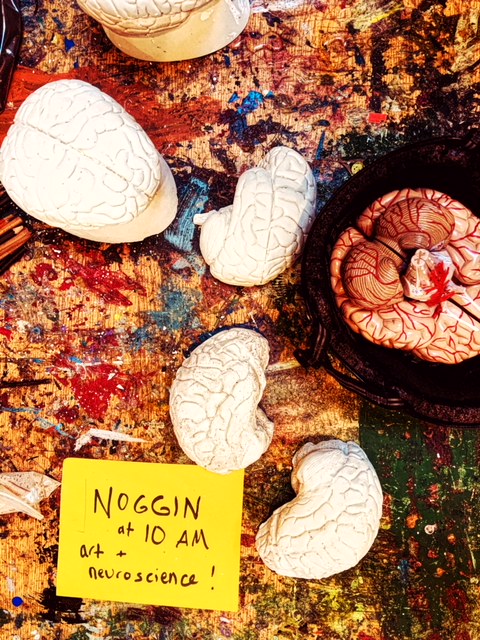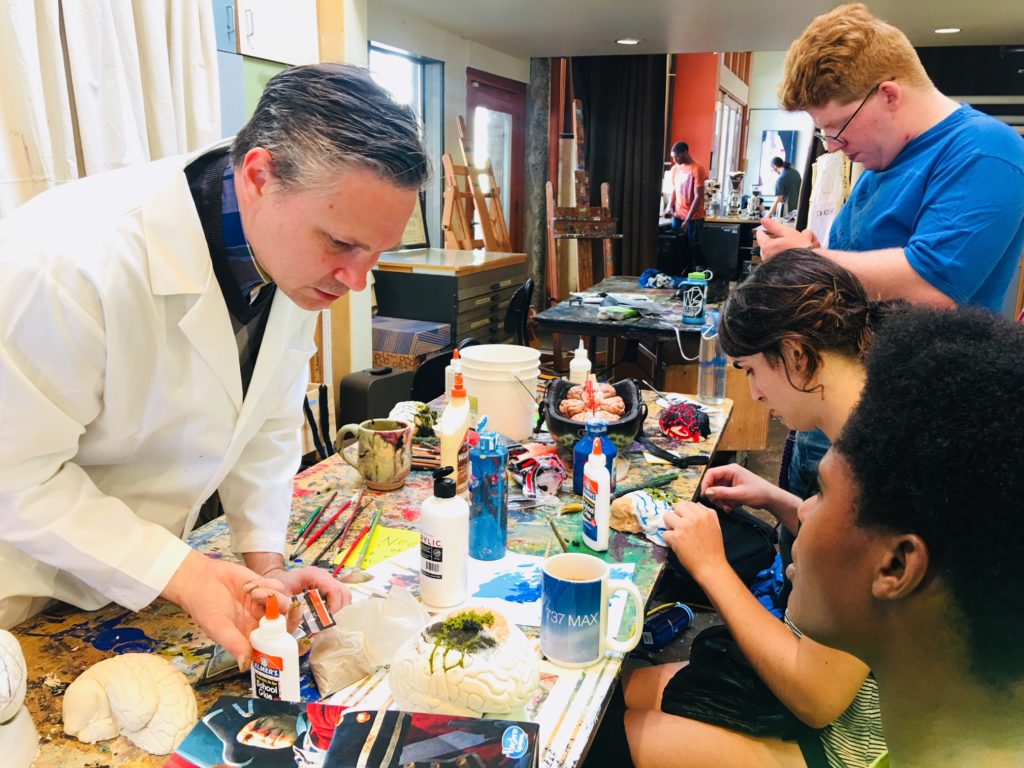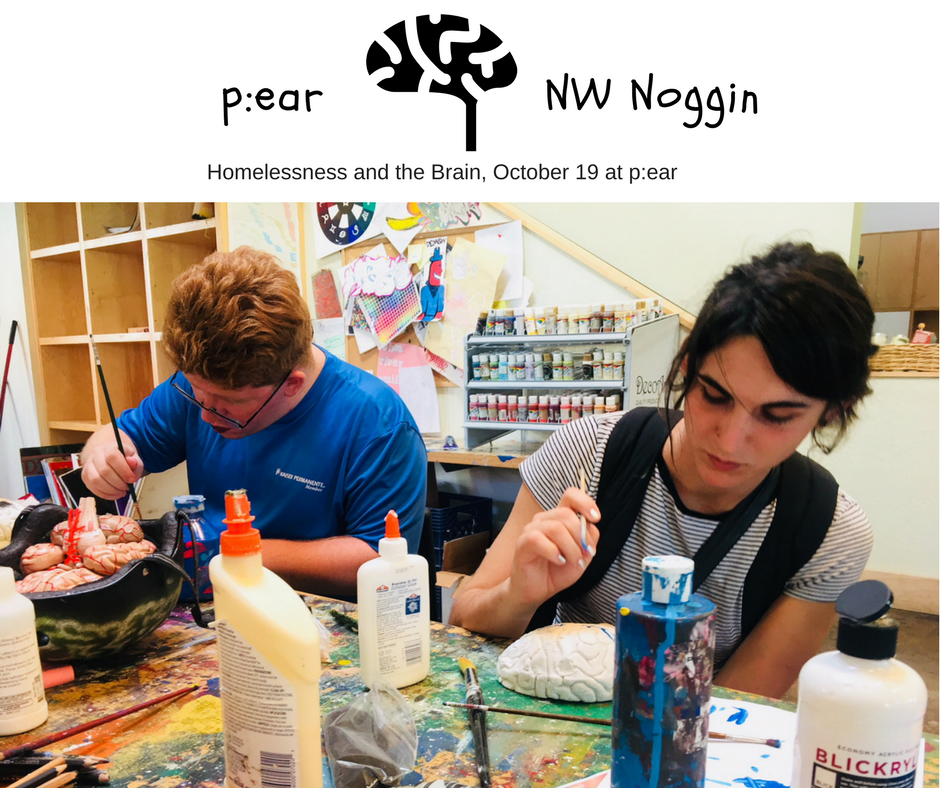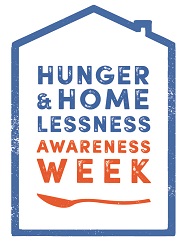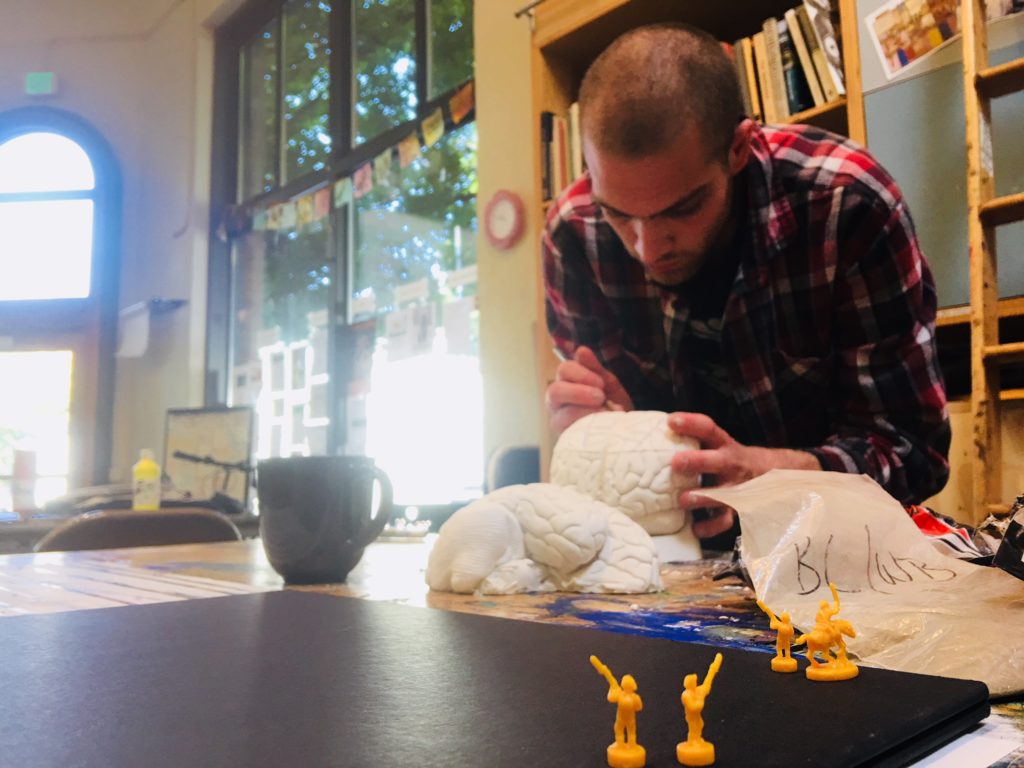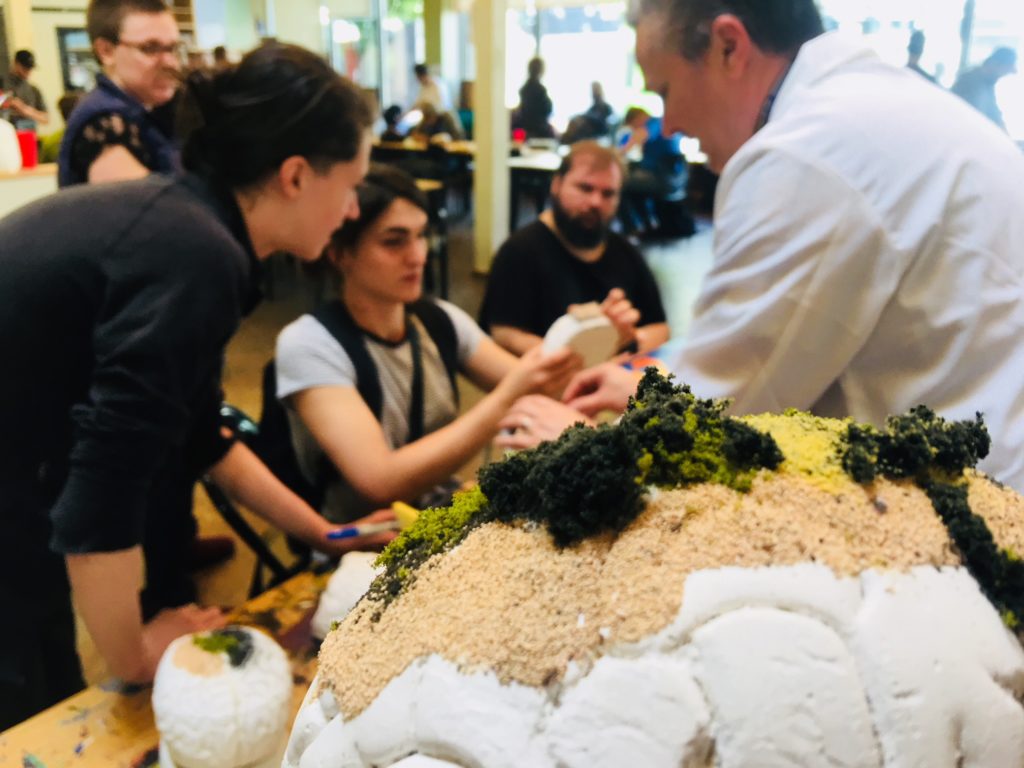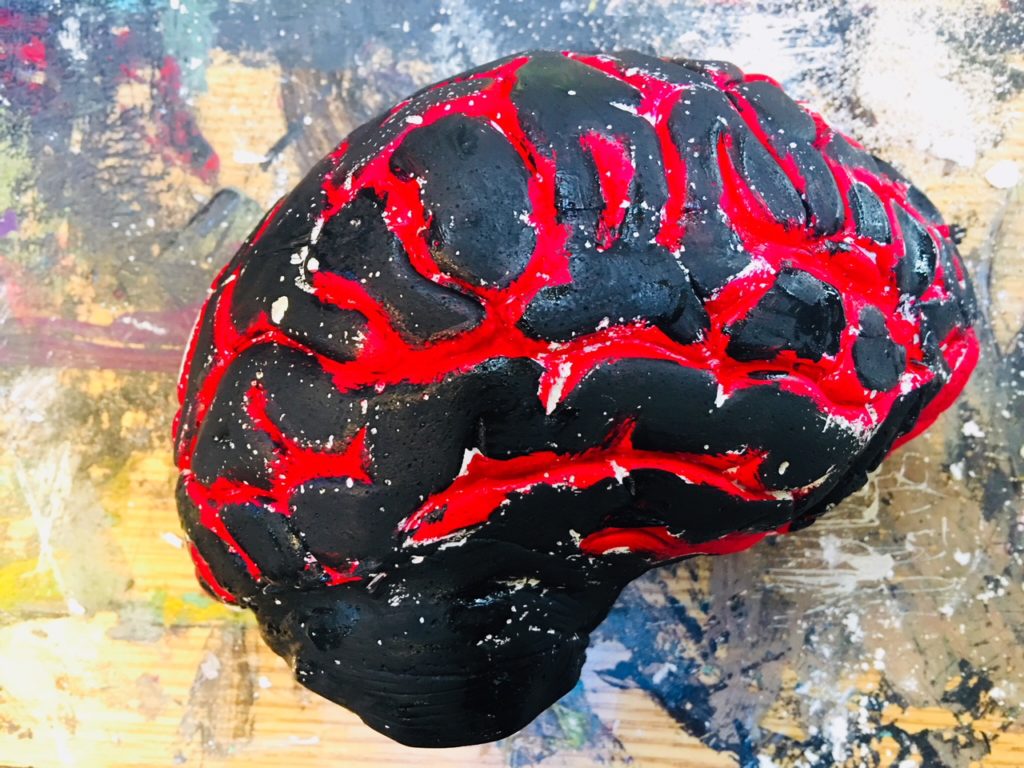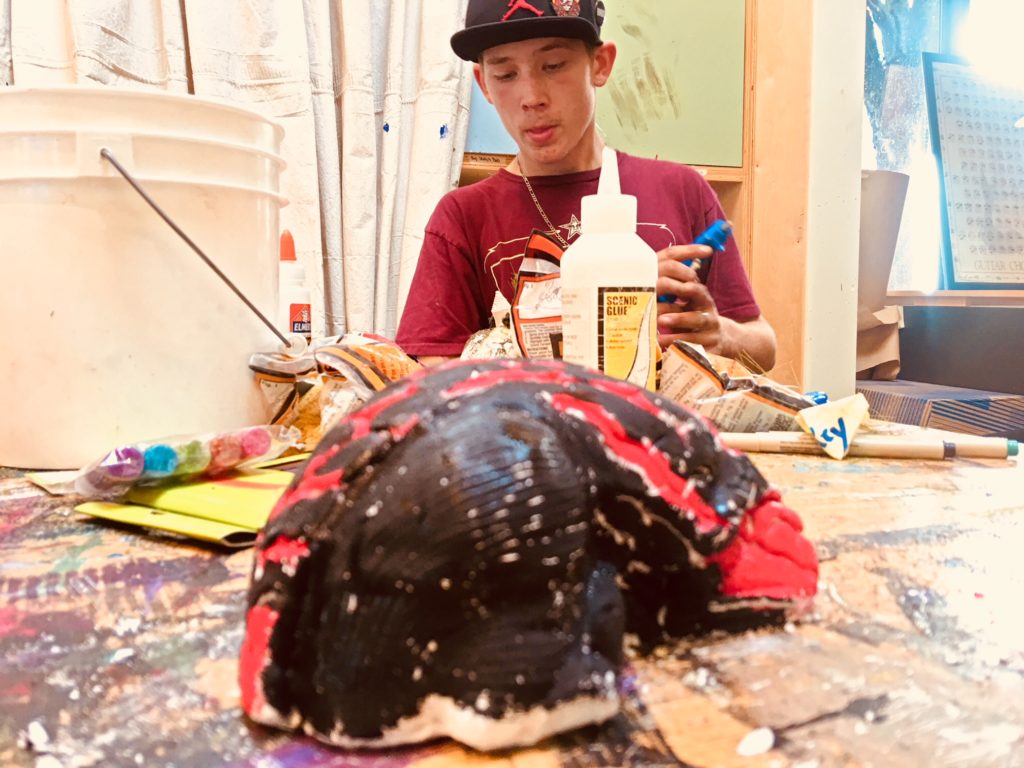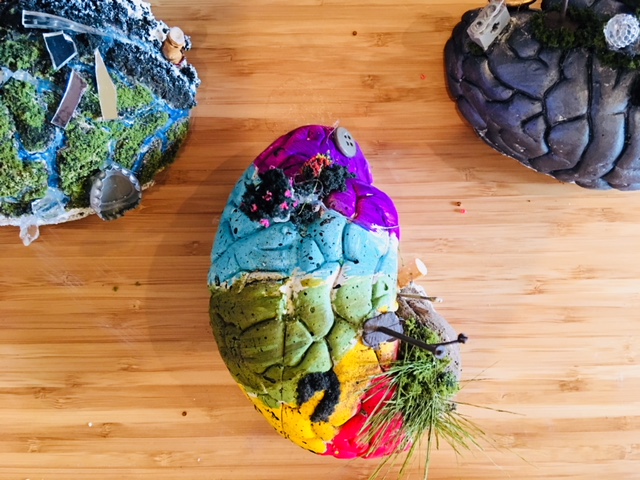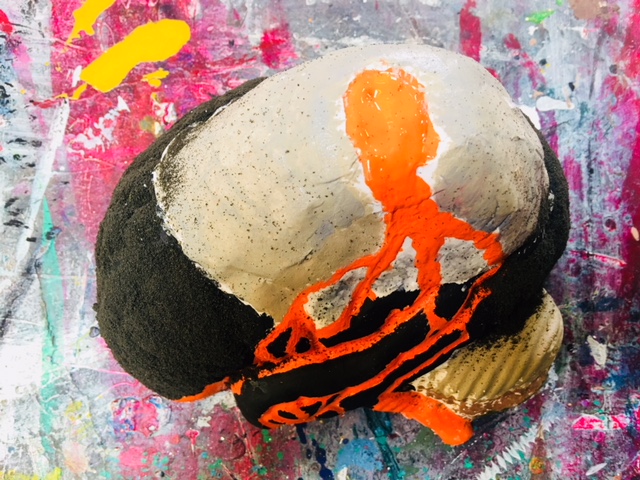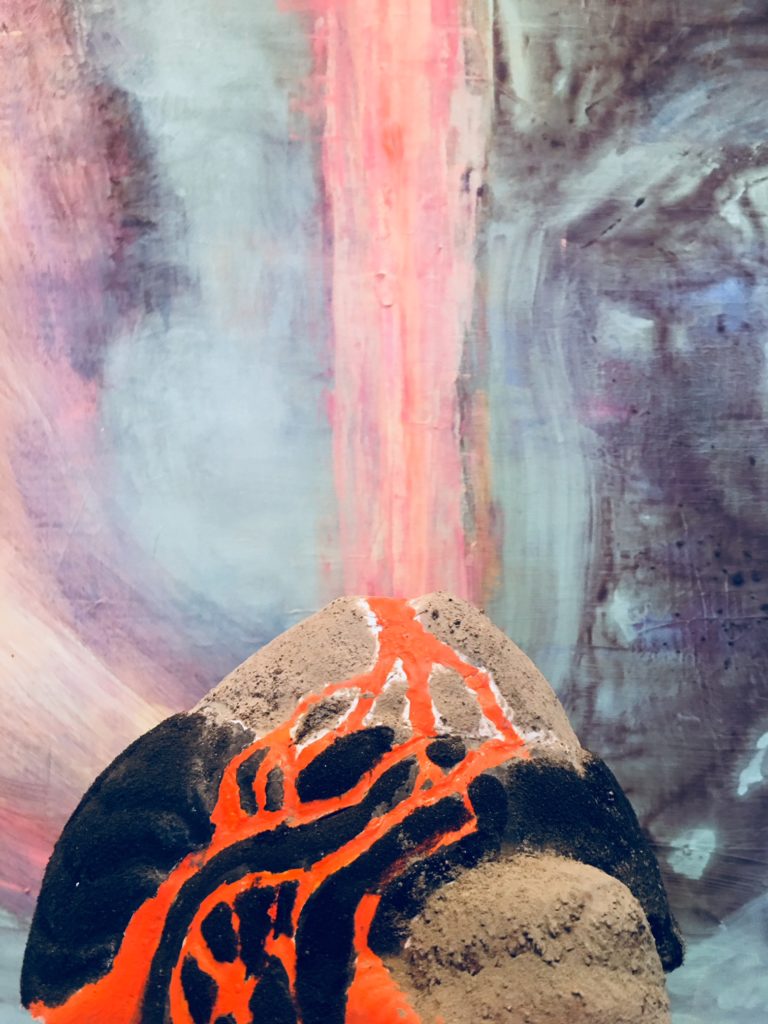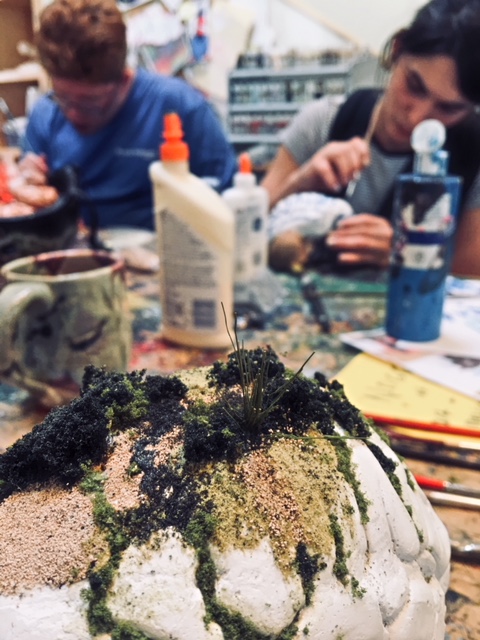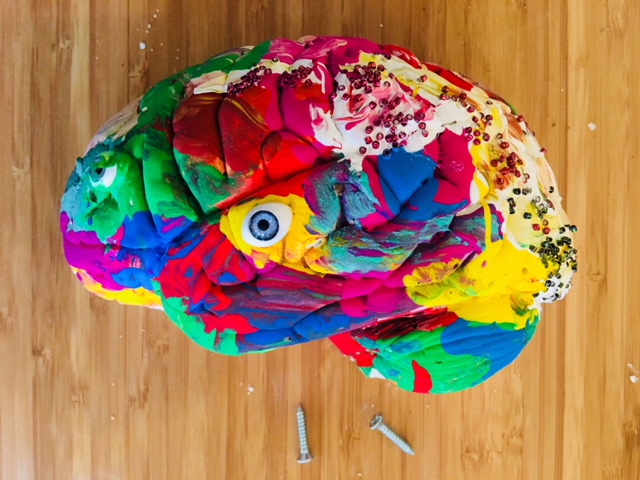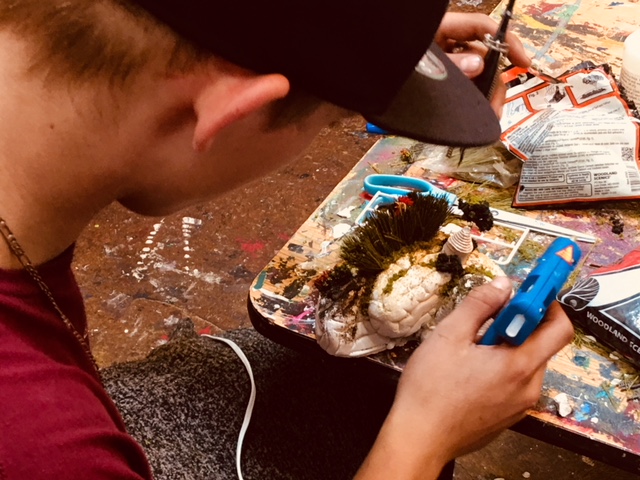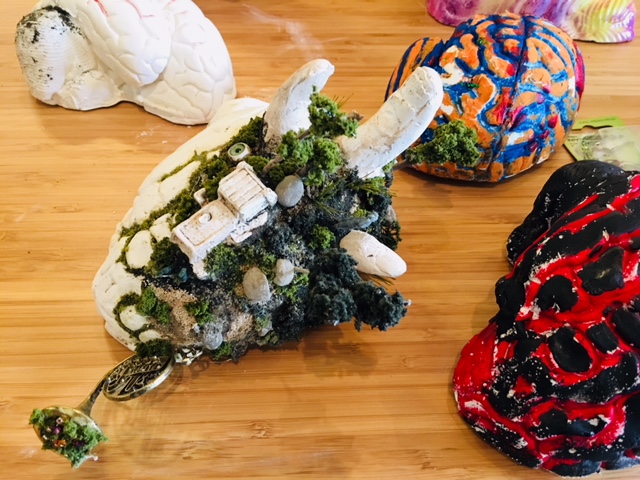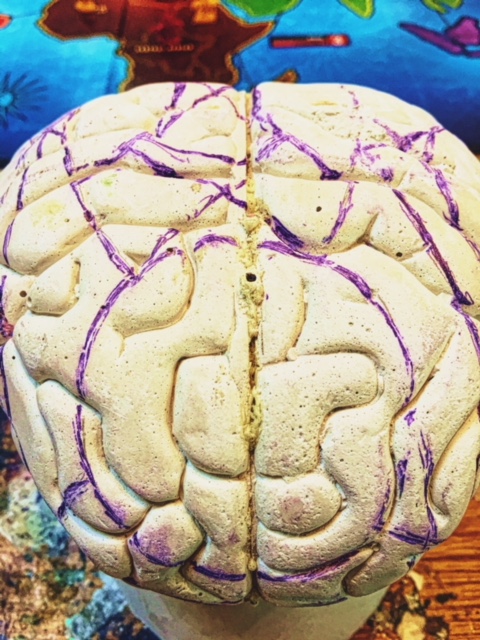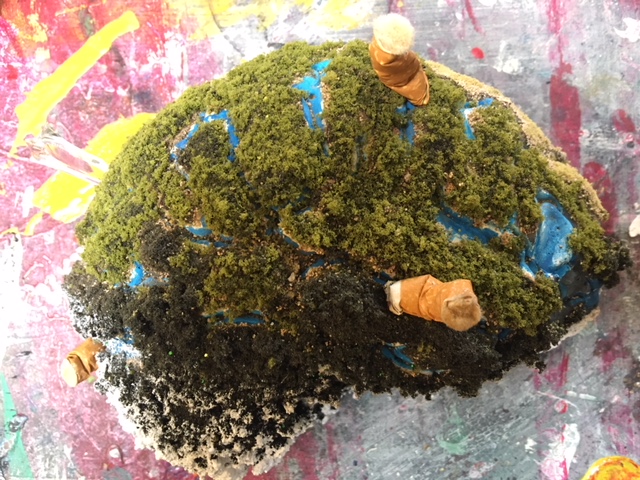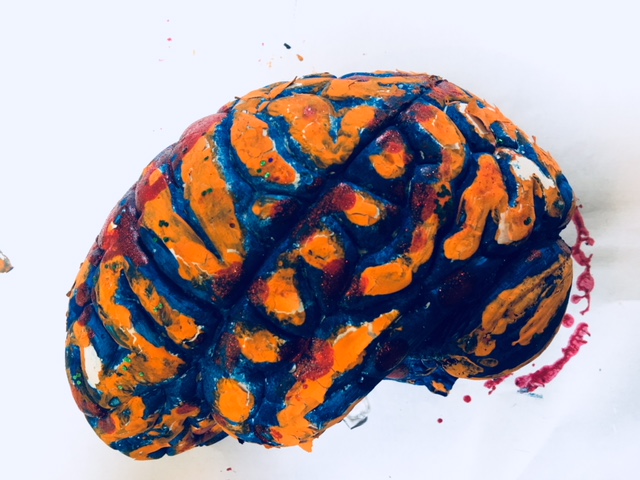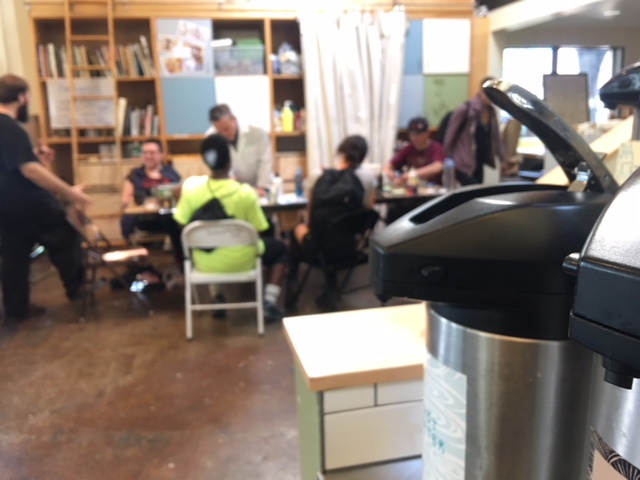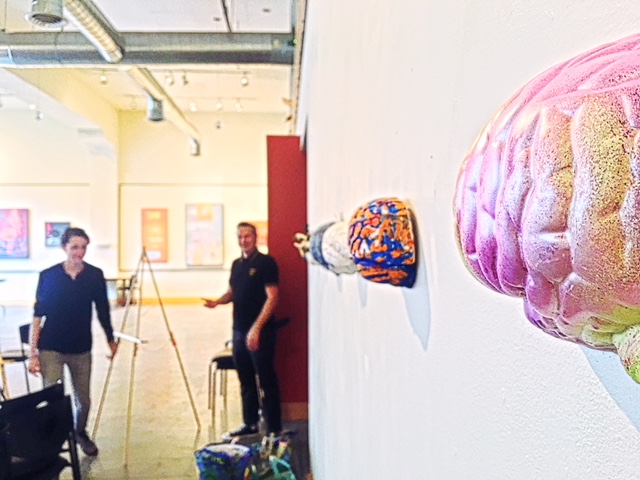WHAT: Homelessness & the Brain @ p:ear
WHERE: p:ear, 338 NW 6th Ave. Portland, OR 97209
WHEN: Thursday, October 19, 10:00am – 1:00pm (9:00am set up for presenters)
NW Noggin has been visiting p:ear, laden with plaster casts of cerebral hemispheres!
We’ve been discussing plans to present brain research and art related to the lack of affordable housing in Portland, and the direct physical effects that homelessness has on human brains…
JOIN US: A public Homelessness & the Brain @ p:ear!
LEARN MORE: Homelessness & the Brain @ p:ear
LEARN MORE: Hunger & Homelessness Awareness Week
LEARN MORE: NW Noggin @ p:ear
On Thursday, October 19, from 10:00am – 1:00pm, we’ll welcome researchers from PSU, OHSU and other area institutions studying sleep, stress, anxiety, depression, emotional regulation, racial bias, methamphetamine, alcohol, teenage brain development, and resilience, plus clinicians and policy makers – as well as data, art and testimony from valuable community members without a home, to illuminate links between a lack of affordable housing and our brains…
Noggin Art Coordinator Jeff Leake has offered plaster brain hemispheres and a host of materials for transforming the cortical surface, and young Portlanders have created landscapes that powerfully convey personal feelings, locations, and other aspects of their lives without homes…
“There is death inside my head.”
“It’s like people see me as an object, not as a human being.”
LEARN MORE: Dehumanizing the Lowest of the Low, Neuroimaging Responses to Extreme Out-Groups
Sleep is particularly impacted by homelessness, and poor, fragmented sleep is linked to a host of mental health disorders. A recent study found that most of us experience troubled sleep during the first night in a new environment, as one brain hemisphere (typically the left) remains active as a “night watch” to help monitor and respond to potential threats. Imagine routinely sleeping in different places, in often hostile environments, intensely and stressfully aware of the need to stay alert.
LEARN MORE: Night Watch in One Brain Hemisphere during Sleep Associated with the First-Night Effect in Humans
“My left hemisphere at night”
Every time we speak with these bright, quick-witted kids, we learn about the situations they’re forced into by a lack of housing – including societal responses, both individually and at a policy level – that have real consequences for the brain.
Methamphetamine, for example, keeps you up at night, and alert for danger. Clustering in groups for safety often means sharing drug habits that cause dependence, or worse.
And given the variability of brains and brain networks involved in risk taking and decision making during adolescence, and the prevalence of depression, anxiety, bipolar disorder and ADHD, the existing inequities regarding access to resources and enrichment, and an educational system that values standardized curricula, testing and attendance far more than creativity, diversity and innovation – too many young people become demoralized, unmotivated, and off the standard K-12 track, and more at risk for homelessness…
One young person with bipolar disorder noted that schools, for example, have no place for kids who perform well for weeks at a time, but then require significant withdrawal from social activity for self care and recovery. These students have a much higher risk of dropping out…
LEARN MORE: Association of Child Poverty, Brain Development, and Academic Achievement
LEARN MORE: Mental health and school dropout across educational levels and genders: a 4.8-year follow-up study
Meet creative, insightful, resilient young members of our community, hear their stories and see their art, and learn from neuroscience researchers, clinicians and policy makers to raise awareness and understanding of how essential affordable housing is for everyone’s brain…
Please add October 19th to your calendars for Homelessness & the Brain!



